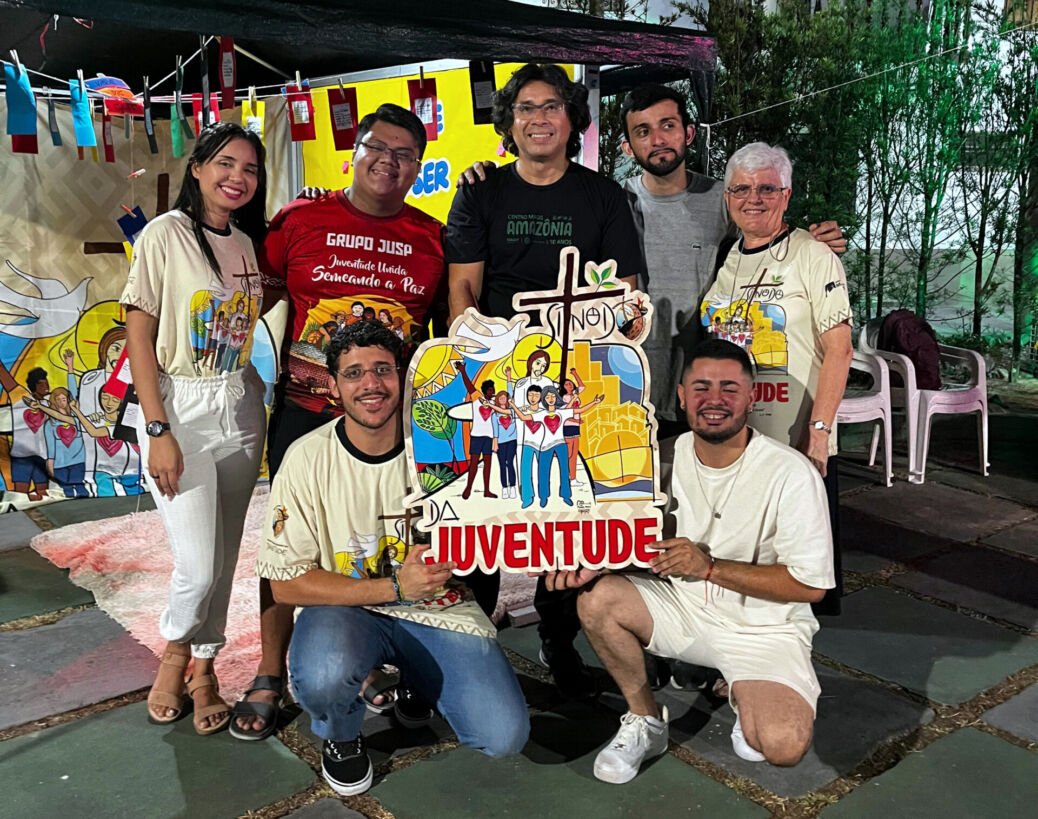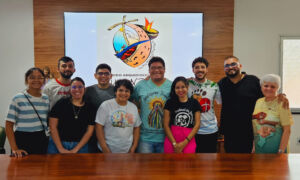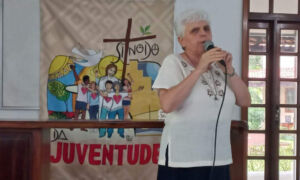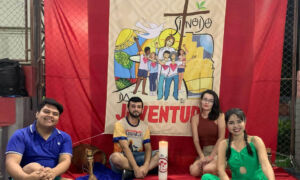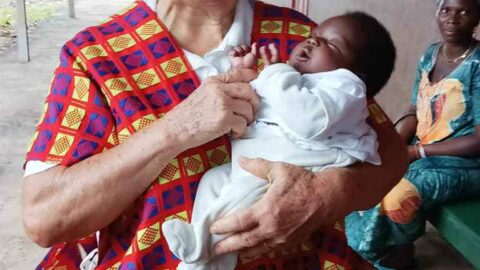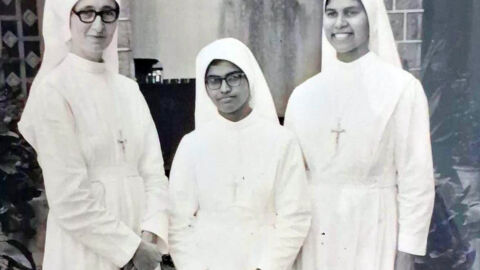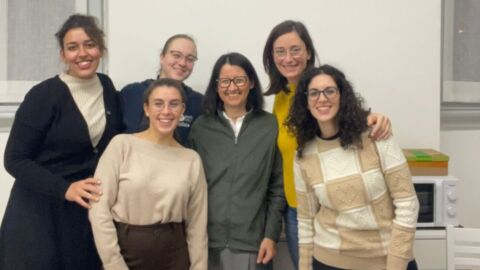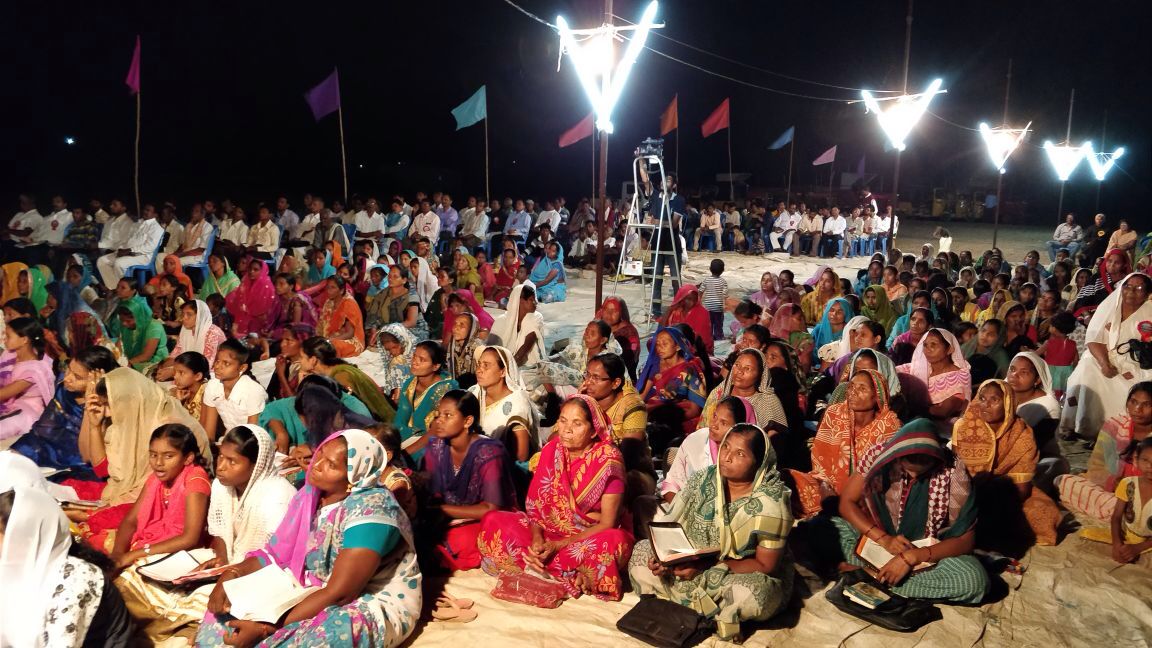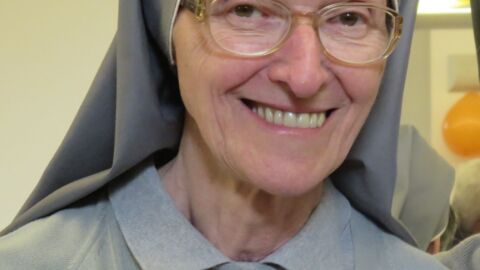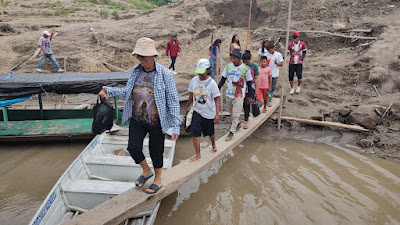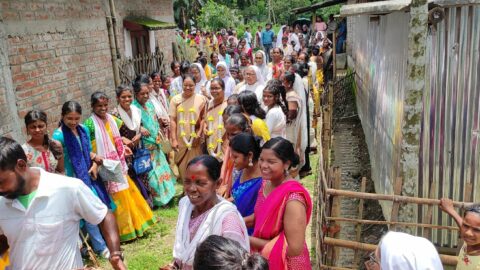I am Sr. Rosanna Marchetti, Italian. I live my vocation as a missionary nun in the Church of Manaus, Amazonia. It is a living and synodal Church that walks with enthusiasm to be ever more missionary. I currently collaborate with a diocesan priest and two lay people in the pastoral coordination of the archdiocese of Manaus.
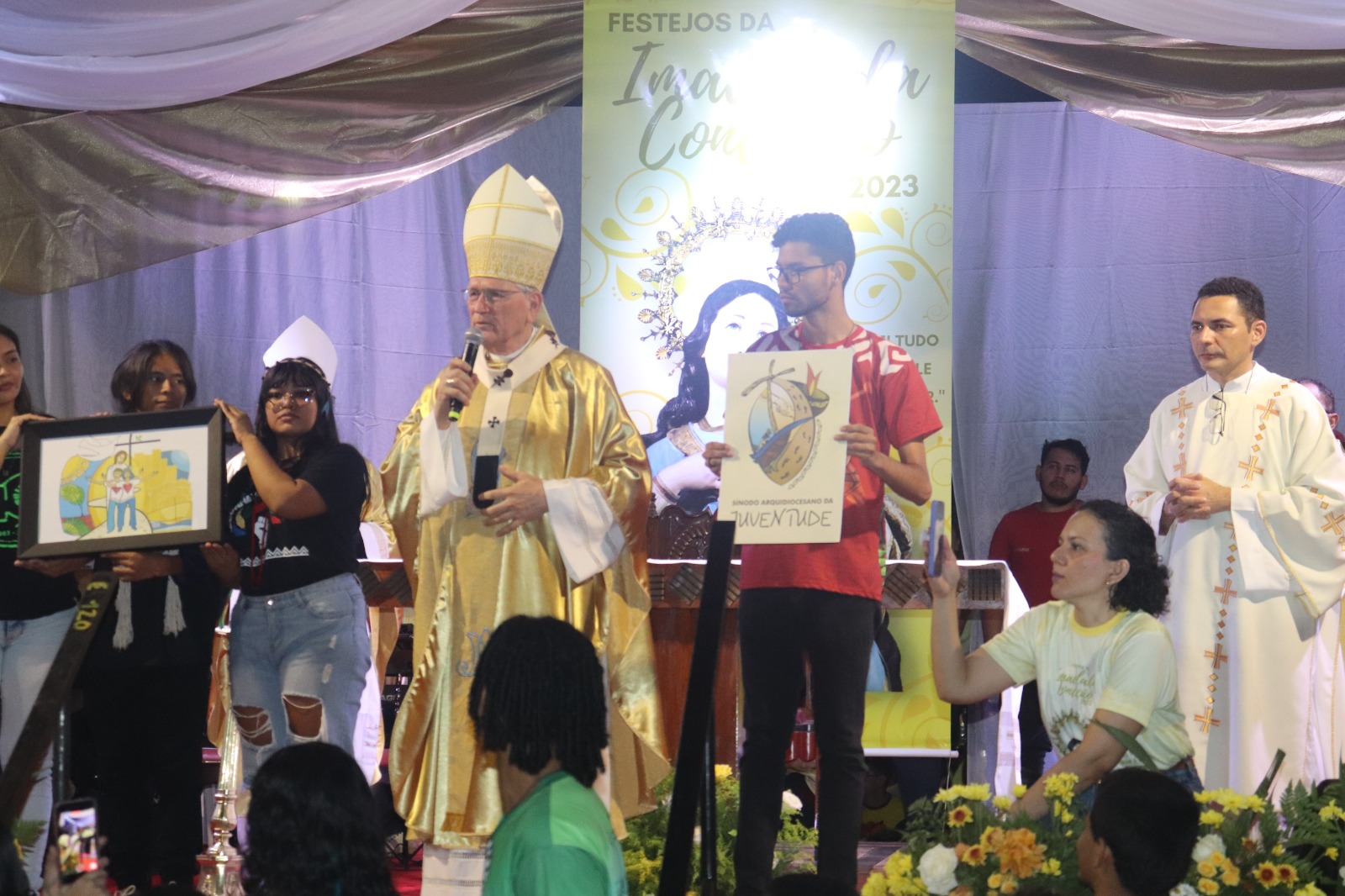
Last year, in December, the archdiocese convened the Synod of Youth. In my role as coordinator, I was entrusted with the mission of accompanying the diocesan commission, composed of a diocesan priest, a Jesuit priest and some young people, to carry forward the process that will lead us to the synodal assembly of young people. Listening to young people is a very deep desire of this local Church, which, after the archdiocesan synodal assembly of October 2022, realized that it was one of the “cries”, rising forcefully from the missionary areas and parishes. This process began on December 8, 2023 and will conclude in July 2025 with the synodal assembly that will open new paths of dialogue with young people.
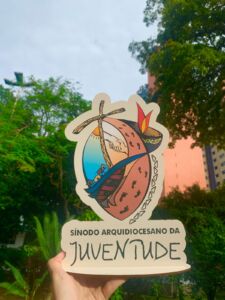
The theme chosen for the Archdiocesan Synod of Youth is “Young People, an Open Road,” with the motto “He drew near and walked with them” (Lk 24:15) inspired by the icon of the disciples of Emmaus.
We are building a process that is proving to be a beautiful journey, built in communion with the Cardinal Archbishop and his assistants, in joy and discernment, to understand what steps the Spirit is indicating to reach the majority of young people in our archdiocese and offer them the opportunity to be heard. The Church wants to know what are their desires and challenges they encounter in living their lives as young people in these times, turbulent but full of opportunities to grow in faith and in living their citizenship.
We have thought of the path in three stages:
Ist TO MEET the young people of our communities and parishes, movements and communities of life to explain to them what a synod is, present the theme and the slogan, invite them to collaborate with us so that young people far from the Church and our pastoral care can be heard. To do this, we have drawn up a calendar of meetings in which the protagonists were the young people of the organizing committee and we adults accompanied them.
I asked two members of the organizing committee what was the greatest challenge they encountered in the first phase, and they answered:
The biggest difficulty now in the organization is the lack of a register of groups; there are many groups, but we do not know where they are. One of the objectives of the Youth Synod is to meet young people and, from the moment we meet them, listen to them, look at them, identify them and say that we are walking together with them (Arlison Malaquias, diocesan seminarian of the Archdiocese of Manaus).
It is not easy to involve parishes and missionary areas in this process. It would be important to have the presence of youth groups, not just one or two representatives, so that they can actively contribute to the listening process that is so important in our Church in Manaus. We would like young people to leave their comfort zone and accept the challenge of building the Synod together. This is our desire and our hope (Pamela Teixeira, young woman involved in the youth teams of Notre-Dame Team).
We finished the first phase on Pentecost Sunday and are now in the second, which aims to listen to as many young people as possible with the help of those who participated in previous meetings.
IInd TO LISTEN: To listen to young people, we have developed two strategies. Thanks to a team of researchers, we have conducted a scientific survey on young people who do not participate in the life of the Church or belong to other religions, and we have offered our Catholic groups a handout and questionnaires with questions to answer via a QR code.
Listening is at the heart of the synodal process. We want to welcome the appeals and desires of the youth world. We will live this experience of closeness and faith for a year, alongside our pastors, but animated by the enthusiasm of the young people who have embraced this mission with us. This listening contains a challenge: to respect the different expressions of youth, the different cultures (indigenous, those living on river bed, quilombola, the different urban and rural realities. This phase is the most important and lasts a year. Once we have received the responses, we will develop a working tool that will be the main document that will guide the work of the Synodal Assembly.
IIIrd TO DISCERN. The final phase will be the Synodal Assembly, conceived and developed on the basis of listening. We will create teams of young coordinators and secretaries who will accompany the working groups. We have defined a pedagogical team that will work with us to develop the methodology of the assembly. The path we have taken has already borne fruit: training, communion and collaboration among the young people themselves. It is a great gift and a great challenge. It is a kairos, a time of grace, for all of us.
The young people of the commission, supported by us adults, are facing challenges and resistance, but this does not slow down our enthusiasm, on the contrary, it strengthens the youthful protagonism and pushes us to live every moment with creativity and boldness.
We feel part of the journey of the Church, which lives the synodal style proposed by Pope Francis, and we see this process as an opportunity for transformation and human and spiritual growth. Walking together helps us grow in faith and friendship, it helps us understand how beautiful it is to live as brothers and sisters and, together, to go on a mission to meet young people thirsty for life and hope.
Sr. Rosanna Marchetti, Brasile Nord

